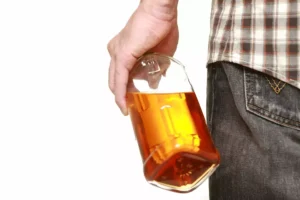
Other examples included people feeling that asking for social support would result in negative impacts on friendships or might lead people to think they ‘had a problem’ with their drinking or were not in control of their drinking. This was often perceived as a severe consequence and something to be avoided. This is in line with the tendency amongst heavier drinkers to construct their drinking identity as positive and healthy, deliberately differentiating themselves from the stigmatised ‘alcoholic other’[37]. TLFB hand-on training was conducted online in total nine 1-hour sessions at the beginning of the pilot phase to equip knowledge and skill for assessment team of study.
Availability of data and materials
“I just kept forgetting about it”—a big change for someone who had been drinking since childhood and heavily as an adult. Uniformed members of the Salvation Army (“soldiers” and “officers”) make a promise on joining the movement to observe lifelong abstinence from alcohol. This dates back to the early years of the organisation, and the missionary work among alcoholics. On a recent Friday night, Rob Zaleski and Kim Daniel walk into Marshall’s bar in Austin. They’re going without alcohol for 30 days, they explain, and are documenting their experience in a podcast and on Instagram at #boozelessATX.
Trial registration

There was a total of 60 codes, which were used to develop 19 categories and seven themes. Four themes focused on broad approaches to alcohol reduction and three themes moderate how applicable reduction approaches are to different contexts. Trial conduct is reviewed regularly by independent boards as well as the study team. The university and local IRBs review the trial progress annually to ensure ethical conduct and participant safety. The DSMB and IRB members and their review processes are independent from investigators and the sponsor. Additionally, the data management and assessment teams conduct various study procedures and data quality checks at each participant study visit.
Alcohol Metabolism in Bone
For these individuals, rescreening for study eligibility may occur after the danger of alcohol withdrawal has passed—participants will be asked to be re-screening following completion of their withdrawal treatment. We also conducted controlled drinking vs abstinence analyses separately for outcomes measured at short, medium, and long term time points. We had planned sensitivity analyses that excluded studies with overall high risk of bias but did not do these owing to sparsity of data.
There are many benefits to giving up alcohol, both short-term and long-term. If you’re considering quitting drinking, these benefits may be just what you need to help you decide. Of course, giving up alcohol is not always easy, and there may be some challenges along the way. “Furthermore, consistent use of alcohol to induce sleep only increases the need to use alcohol in the future to get to sleep,” he explains. “Currently, effective treatments for AUD are limited, and many patients struggle with relapse despite existing therapies,” she explained.
Qualitative data
Pre-existing mental health conditions can sometimes lead people to turn to alcohol to cope with their symptoms. In other cases, long-term alcohol exposure can increase a person’s risk of developing a psychiatric illness. The third theme focused on Creating barriers to drinking, such as making plans in advance to either limit the availability of alcohol in the moment they might want it or limit whether and how much they drink.

FDA-approved drugs can help people stop or reduce drinking, but stigma and lack of awareness stand in the way

It is still unknown whether these positive effects of abstinence persist beyond a month, but Moore speculated it could be possible. “It’s quite clear that alcohol has a physiological effect on the body, so I’d be surprised if all those effects just wore off,” he said. The negative effects of your drinking may have turned you off of alcohol entirely, and that’s completely okay. If your reason for choosing abstinence is simply that you want to, that’s a perfectly valid reason to quit alcohol altogether. Moderation often requires that you take anti-craving medication for an indefinite period of time. Medication makes it easier to put the brakes on after a drink or two, and sticking to moderation is challenging without it.
- Trouble sleeping is common after you stop drinking, especially early in recovery.
- The final step compared cortical thickness changes in the alcohol use disorder group with those in the control group from their initial to final scans.
- Acknowledging and celebrating the hard work of recovery is helpful for keeping you motivated and reminding you why you took this brave step toward sobriety in the first place.
- If you’re a heavy drinker, you’re at an increased risk of developing certain diseases, such as cancer, heart disease, and stroke.
- For some participants, this was exacerbated by previously trying, but not enjoying no-lo drinks.
- The main reasons for having some concerns were lack of description in the randomisation process (39/64 studies) and unbalanced missing data between groups (13/64 studies); and the main reason for high risk of bias (20/64 studies) was missing outcome data.
- The latter findings indicate a longer recovery period is necessary to reverse fatty liver completely in alcohol-withdrawn rats.
- The study was approved by the IRBs at the University of North Carolina, Chapel Hill and Hanoi Medical University.
- In humans (and other animals, such as rodents), the liver is the primary site of alcohol metabolism.
- Post-acute withdrawal syndrome (PAWS) involves withdrawal symptoms that persist past the detox period.
- You may also experience what is commonly called sobriety fatigue, which refers to the overall exhaustion that may occur as a result of the emotional and physical stress of staying sober.
Now, if you’re worried that you are one of the 17 million U.S. adults who are alcohol dependent, and alcohol is causing you stress or harm, seek medical advice. As we’ve reported, there are a variety of treatments beyond Alcoholics Anonymous, including counseling, medications and support groups to help people who want to end that dependency. This NIAAA guide can help you find a program or approach that’s right for you. Over the course of 7 months of abstinence, individuals with alcohol use disorder experienced significant improvements in their brain structure. The alcohol use disorder group, recruited primarily from a VA setting, was 51 years old on average, 90% Male, and 80% White. One in 5 had a co-occurring substance use disorder in addition to alcohol, 50% a psychiatric disorder, and 65% had history of hypertension.

Prepare for PAWS
In regions where heavy alcohol use is normative, alcohol reduction interventions may be needed to improve PrEP adherence among MSM PrEP clients. The BAI, which improved HIV outcomes among PWH with unhealthy alcohol use, is a logical intervention to adapt to the context of MSM using PrEP. This study will provide insight regarding the adaptation of the BAI to a new https://ecosoberhouse.com/ population. The trial will also shed light on the potential impact of targeting alcohol use reduction to improve PrEP persistence among MSM worldwide. To monitor the process of change in PrEP and alcohol-related outcomes, as well as BAI acceptability, we will conduct qualitative interviews with a subset of 40 RCT study participants, with 20 MSM in each arm.
